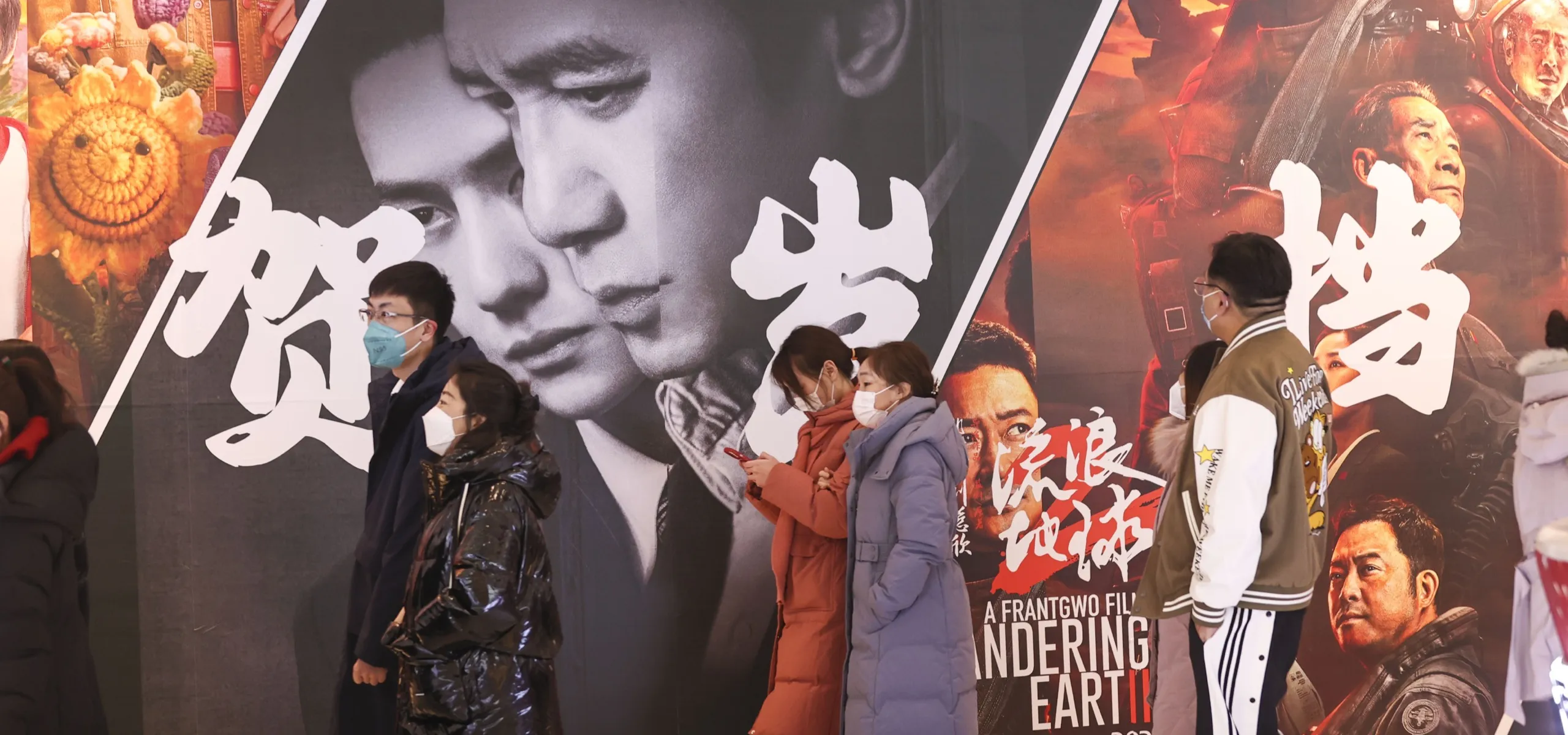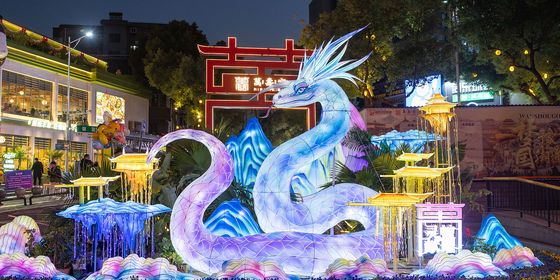With a sizable box office and a diverse lineup, the Chinese film industry is off to a good start in the Year of the Rabbit
In China, Lunar New Year is the most coveted release window for films. As the whole country goes on holiday, this is the time when many Chinese, in the mood for entertainment and with some time and money to spare, head to the movie theaters. Five of the 10 highest-grossing movies of all time in the country, including the 2019 sci-fi smash hit The Wandering Earth, were released during this period.
This year’s holiday box office started slow with revenue of 1.35 billion yuan on the first day of the vacation, the lowest figure in four years. However, thanks to a host of factors—a wider range of offerings, good word-of-mouth, and the lowest average ticket price since 2017—the next few days’ earnings picked up speed. The box office of the full seven-day holiday period closed with 6.75 billion yuan, the second-largest figure in history.
Moreover, the seven tentpoles released during this Lunar New Year (ranging from a fantasy animation and family comedies to a big-budget sci-fi prequel and a wartime spy thriller) arguably mark the highest quality and most diverse selections in the past several years.
Here are four Lunar New Year offerings that may be worth a trip to the cinema.
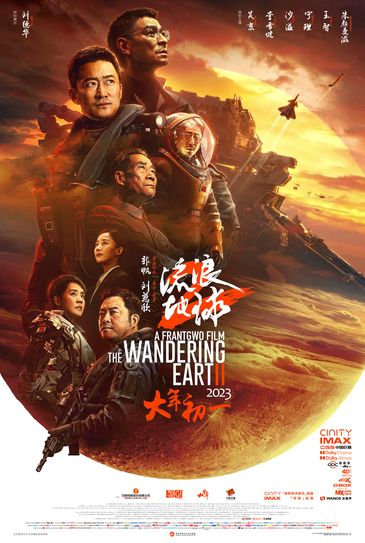
The Wandering Earth 2 (《流浪地球2》)
Four years after the breakout success of China’s first major sci-fi blockbuster, The Wandering Earth, director Guo Fan has returned with a prequel that focuses on conflicts that lead up to the eponymous project to push Earth away from the rapidly expanding sun. Set mostly in 2044 and 2065, the interconnected story lines of three crucial characters—borderline arrogant but pragmatic diplomat Zhou Zhezhi, seemingly unaging and self-sacrificing astronaut Liu Peiqiang, and single-minded engineer Tu Hengyu—comprise the 173-minute running time. In the most interesting, Black Mirror-esque story line, desperate Tu (Andy Lau) is willing to do anything to give his daughter a second chance at life. When a more humanistic touch is added and the nationalism dialed down, the immense scale of the story (adapted from the short story of the same title by The Three-Body Problem author Liu Cixin who executive produced the film) feels even bigger and more impactful than the first installment.
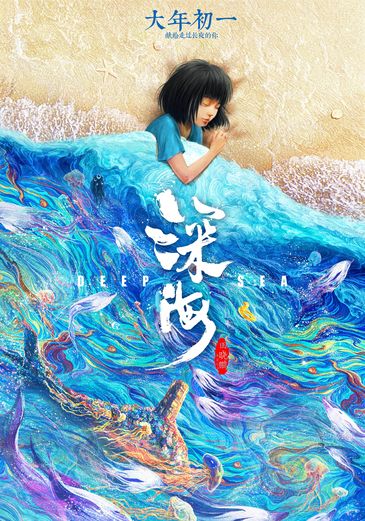
Deep Sea (《深海》)
Depressed and neglected since her parents’ divorce, Shenxiu lives in a gloomy world. But an incident during a cruise with her father’s new family transports her into a realm of underwater fantasy where she boards the titular submarine restaurant. Together with its head chef Nanhe and the adorable if unhygienic animal crew, Shenxiu embarks on a journey to find her mother and save the restaurant. The sentimental story of this animated film tugs at your heartstrings a good deal but suffers from a major flaw right toward the end. Nevertheless, writer-director Tian Xiaopeng’s imaginative world is wonderful and weird, populated with hallucinatory slimy spirits and shape-shifting animals. These sea creatures and their aquatic habitat are rendered in an immersive and fluid 3D animation—arguably on a level that’s unprecedented in the history of Chinese animation. It was announced recently that the film will have its international premiere at the Berlin International Film Festival.
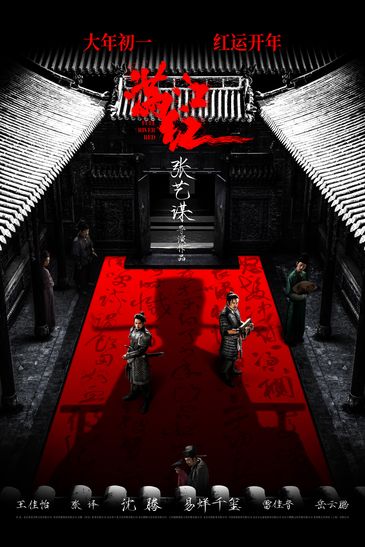
Full River Red (《满红红》)
The latest directorial outing from the incredibly prolific Fifth-Generation auteur Zhang Yimou is an amusing if somewhat uneven combination of suspense, comedy, and period film. An envoy of the rival Jin dynasty is found murdered in the residence of Southern Song dynasty chancellor Qin Hui. Lowly soldier Zhang Da (Shen Teng) and deputy commander Sun Jun (Jackson Yee) are tasked with finding the culprit and the missing letter from the envoy before dawn breaks. Personal ambitions mix with political intrigue and the interrogation becomes fraught with hurdles as conniving eunuchs He (Zhang Yi) and Wu (Yue Yunpeng) join in the murder mystery. For viewers unfamiliar with the era’s history and the infamous fallout between the manipulative Qin Hui and patriotic warrior Yue Fei, however, the motivation of some characters may be hard to sympathize with.

Hidden Blade (《无名》)
After Chinese Doctors and The Battle at Lake Changjin, here comes the third (and superior) installment in Bona Film Group’s “China’s Victory Trilogy.” In this stylish, moody spy drama written and directed by Cheng Er, undercover Communist agents try to navigate Japanese-occupied Shanghai in the early 1940s. The characters’ allegiances aren’t immediately clear in the film, which boasts a star-studded cast, including Wang Yibo, Zhou Xun, and Hong Kong actor Tony Leung. Influences abound in the film, in which the portrayal of tragedy from Schindler’s List meets the mannered characterization of Inglourious Basterds. But the one source that the film pays tribute to the most is Cheng’s own The Wasted Times, a 2016 suspense drama also set in wartime Shanghai, so much so that the two might have shared the same script, with Hidden Blade rocking an additional dose of party allegiances. The film’s overly contrived editing and an unlikely outcome for a certain character detract significantly from the viewing experience, but the impeccable set designs and striking camerawork make for a visual feast.





